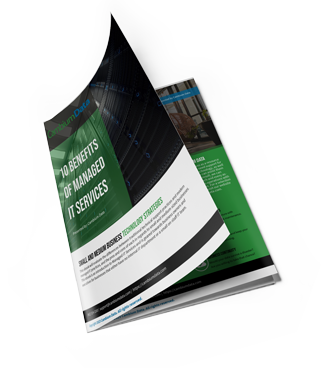
Businesses are often so concerned with their day-to-day operations that they forget to invest heavily in network security. Others understand the need for comprehensive network security, but have a lenient strategy in regards to their IT, which can be just as detrimental in the event of a data leak. Understanding what network security entails, as well as the best practices that you can adhere to that will ensure your company’s network is secure from the numerous outside threats looking to infiltrate your network, is essential to keeping your data, and ultimately your business, safe.
What is Network Security?
Often the best way to get a feel for a concept is to educate yourself on the topic’s major points and some results other users have experienced.
All this will help you better understand the topic. This can be said for network security. On the surface it might appear to be simply keeping your data safe, but there’s far more to it than that. When you set in motion a plan to secure your company’s network, you should first take into account the protection you need from high-level and low-level threats alike. It likely consists of some sort of regular maintenance which includes the patching of software systems to seal vulnerabilities, integration of security hardware and software on your network, as well as the regular monitoring of your network traffic to help determine the presence of any abnormalities. These steps produce a comprehensive network security program that will keep unwanted intruders off of your company’s network.
What Can Network Security Protect Your Business From?
Bugs, viruses, and vulnerabilities have all existed since the dawn of computing, but the threats found in today’s technology world vastly outnumber and outperform them.
In part, this is due to how society has grown heavily reliant on the Internet. Here are some of the threats which proper network security can protect your business from:
- Spyware and adware: while not particularly threatening, they can invade your privacy and pave the way for more dangerous infections. Spyware can log your keystrokes, while adware is simply an annoying means to gain profit.
- Phishing and Identity Theft: Hackers will often try to pose as a reputable institution which your business has relations with in an attempt to steal information from you, such as credit card numbers, banking credentials, or passwords. They’ll do this by appearing legitimate through an email or an elaborate, fake website designed to look like the real deal.
- Viruses, Malware, and Exploitation of Vulnerabilities: The goal of a hacker is to infiltrate your databases and make off with valuable information, or to leave a Trojan backdoor behind for later access at their leisure. Hackers often infect systems with viruses or malware which can either cause damage or allow for remote code execution. These measures take advantage of vulnerabilities found within the code of a piece of software or an operating system, and they can be difficult to remove once they’ve been implanted.
Network Security from Cambium Data
At Cambium Data, we aim to take preventative measures that keep threats from entering your system in the first place.
This lets you avoid costly maintenance or downtime which might follow a hacking attack. A comprehensive network security solution, like our Unified Threat Management device, keeps threats of all kinds from entering your network and neutralizing those which do. Included in our UTM solution is:
- Firewalls: Firewalls are your first lines of defense against outside threats. A firewall analyzes the traffic and data going to and from your network. Think of it like a virtual bouncer which keeps dangerous entities from entering your network.
- Antivirus Software: If a virus or piece of malware does manage to get through your firewall, it can be neutralized with an enterprise-level antivirus software. An antivirus eliminates threats as quickly as possible while limiting damage done.
- Spam Blocking: Not only is spam annoying and useless, some phishing emails might slip through your defenses. Instead of going directly to your inbox where you might fall for their tricks, it goes to the spam folder, where it can be promptly ignored and deleted.
- Content Filtering: Not all web content is safe for viewing, so it’s important that your team can tell the fake sites from the real ones. Content filtering allows you to block certain websites from access, so it’s also good for increasing productivity in the office by limiting employee access to time-wasting websites like Facebook, BuzzFeed, and others.
With Cambium Data's managed IT services, we can handle this technical information for you while you reap all of the benefits of a protected network. Our services are an inexpensive, monthly investment, contrary to the average break-fix technology company.
A healthy network is a strong network, and Cambium Data can take care of that, too. With our remote maintenance tool, we can apply the latest patches and vulnerabilities as they are released. If you’re interested in our UTM solution or our remote maintenance service, give Cambium Data a call at (402) 514-3200.

